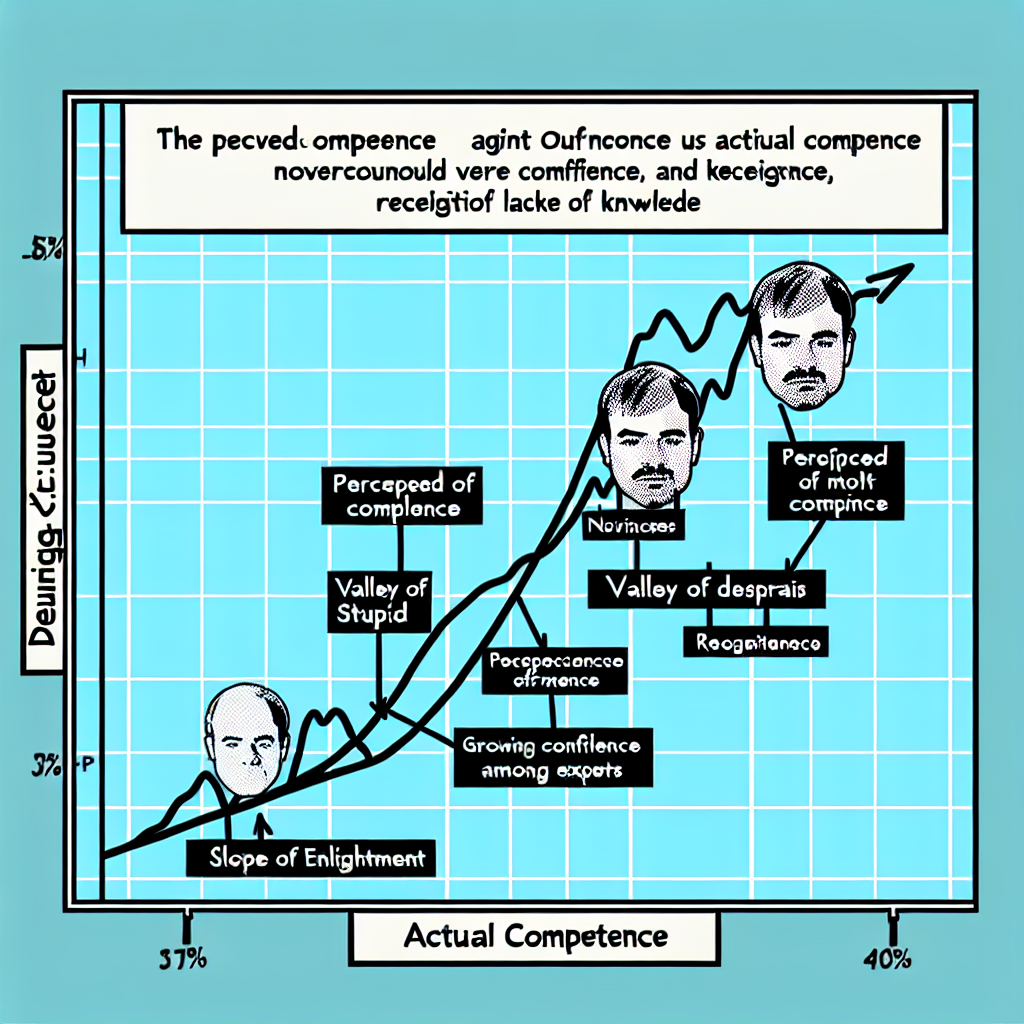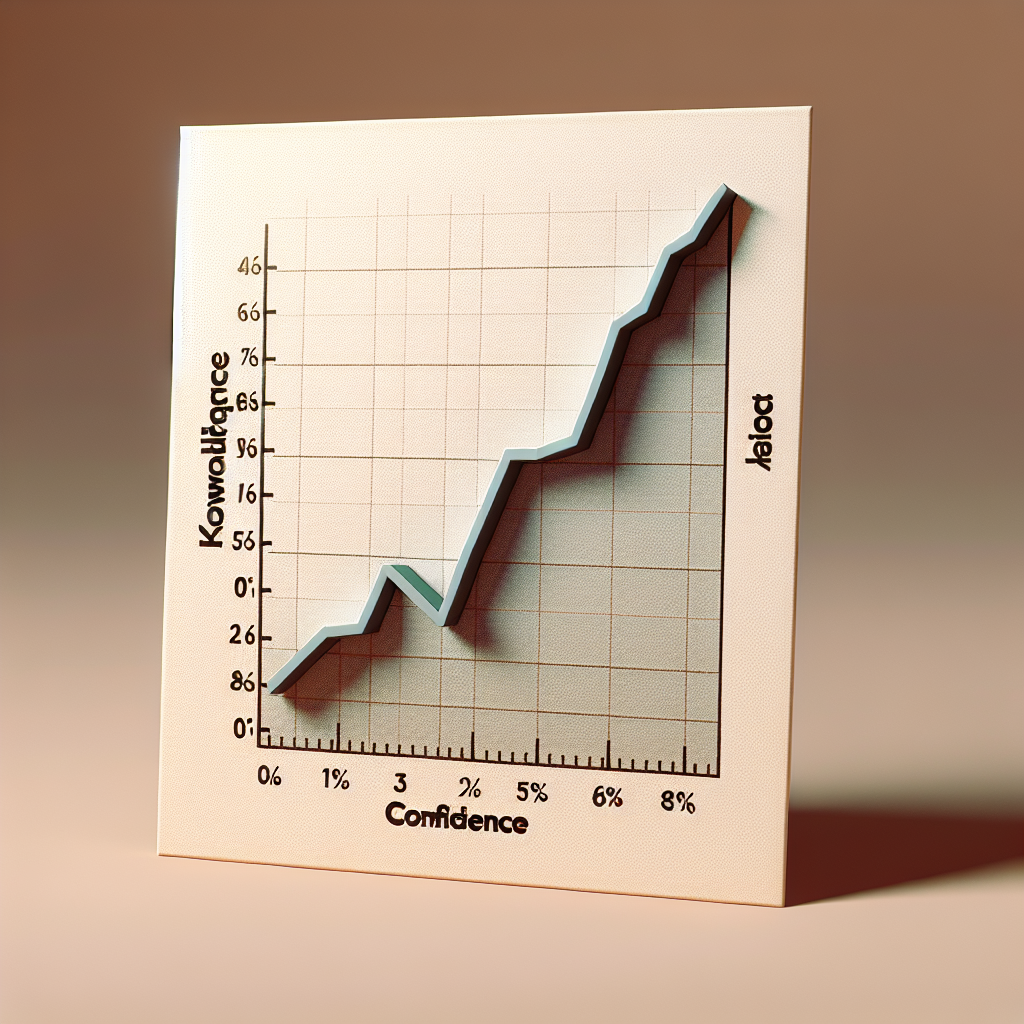-
Table of Contents
Introduction
The Dunning-Kruger Effect is a cognitive bias that refers to individuals’ tendency to overestimate their own abilities and knowledge while underestimating the abilities and knowledge of others. This effect was first described by psychologists David Dunning and Justin Kruger in 1999, based on their research on self-assessment and metacognition. The Dunning-Kruger Effect can have significant implications in various domains, such as education, decision-making, and professional performance.
Feeling Stressed or Recognize These Signs?
Talk to a Therapist NowUnderstanding the Dunning-Kruger Effect: A Cognitive Bias in Self-Perception
The Dunning-Kruger Effect is a cognitive bias that affects how individuals perceive their own abilities and knowledge. Coined by psychologists David Dunning and Justin Kruger in 1999, this phenomenon refers to the tendency of people with low ability in a particular area to overestimate their competence. Conversely, individuals with high ability in a specific domain tend to underestimate their competence. This effect has significant implications for various aspects of life, including education, decision-making, and even politics.
One of the key features of the Dunning-Kruger Effect is the lack of metacognitive skills in individuals who fall victim to this bias. Metacognition refers to the ability to reflect on one’s own thinking processes and evaluate one’s own knowledge and abilities. People who are less competent in a particular area often lack the necessary skills to accurately assess their own performance. This leads them to overestimate their abilities and believe they are more knowledgeable or skilled than they actually are.
The Dunning-Kruger Effect can be observed in various domains, such as academic performance. Students who struggle with a subject may believe they are performing well, despite evidence to the contrary. This overconfidence can hinder their learning and prevent them from seeking help or improving their skills. On the other hand, high-achieving students may underestimate their abilities and attribute their success to external factors, such as luck or easy tasks. This self-doubt can hold them back from fully realizing their potential.
In addition to education, the Dunning-Kruger Effect also has implications for decision-making. People who lack expertise in a particular area may make poor decisions because they are unaware of their own limitations. They may fail to seek advice or consider alternative viewpoints, leading to suboptimal outcomes. This effect can be particularly problematic in fields such as finance or medicine, where decisions can have significant consequences.
The Dunning-Kruger Effect is not limited to individuals’ self-perception of their abilities. It can also influence how people perceive others. Those who are less competent in a specific domain may mistakenly believe that others are equally unskilled. This can lead to a lack of appreciation for the expertise of others and a tendency to dismiss their opinions or advice. Conversely, individuals with high ability may assume that others possess similar levels of knowledge or skill, leading to frustration or impatience when working with less competent individuals.
The Dunning-Kruger Effect has gained attention in recent years due to its relevance in politics. In a democratic society, citizens are expected to make informed decisions and elect competent leaders. However, the Dunning-Kruger Effect suggests that individuals with limited knowledge or expertise may overestimate their understanding of complex political issues. This can lead to uninformed voting decisions and the election of leaders who may not possess the necessary skills or knowledge to effectively govern.
Understanding the Dunning-Kruger Effect is crucial for both individuals and society as a whole. Recognizing our own limitations and being aware of the potential for bias in self-perception can help us make better decisions and improve our overall competence. Additionally, being mindful of this effect can foster a more inclusive and respectful environment, where the expertise of others is valued and acknowledged. By promoting metacognitive skills and encouraging a humble approach to our own abilities, we can mitigate the negative impact of the Dunning-Kruger Effect and strive for personal and collective growth.
Exploring the Impact of the Dunning-Kruger Effect on Decision-Making and Problem-Solving

The Dunning-Kruger Effect is a psychological phenomenon that refers to the tendency of individuals with low ability or knowledge in a particular area to overestimate their competence. This effect was first identified by psychologists David Dunning and Justin Kruger in 1999, and it has since been widely studied and discussed in various fields, including psychology, education, and even politics.
One of the key implications of the Dunning-Kruger Effect is its impact on decision-making and problem-solving. When individuals are unaware of their own incompetence, they are more likely to make poor decisions and struggle to solve complex problems. This is because they lack the necessary skills and knowledge to accurately assess their own abilities and make informed choices.
In decision-making, the Dunning-Kruger Effect can lead to overconfidence and a tendency to overlook important information or alternative options. Individuals who are affected by this bias may believe that they have all the answers and fail to consider different perspectives or seek input from others. As a result, they may make decisions that are not well-informed or that have negative consequences.
Similarly, the Dunning-Kruger Effect can hinder problem-solving abilities. When individuals overestimate their competence, they may be less likely to recognize their own limitations and seek help or guidance when faced with a difficult problem. This can lead to a lack of progress or even exacerbate the problem further.
Furthermore, the Dunning-Kruger Effect can also impact how individuals respond to feedback and criticism. Those who are affected by this bias may be more resistant to feedback that challenges their perceived competence. They may dismiss or ignore constructive criticism, which can hinder their ability to learn and improve.
The impact of the Dunning-Kruger Effect on decision-making and problem-solving is not limited to individuals alone. It can also have broader societal implications. For example, in the political realm, individuals who are affected by this bias may be more likely to hold extreme or unfounded beliefs and be resistant to changing their views, even in the face of contradictory evidence. This can contribute to polarization and hinder constructive dialogue and problem-solving.
So, how can we mitigate the negative impact of the Dunning-Kruger Effect? One approach is to promote self-awareness and encourage individuals to critically evaluate their own abilities and knowledge. This can be achieved through education and training programs that emphasize the importance of humility, open-mindedness, and a willingness to seek feedback and learn from others.
Additionally, creating a culture that values expertise and encourages collaboration can also help counteract the Dunning-Kruger Effect. By fostering an environment where individuals feel comfortable seeking help and input from others, we can promote better decision-making and problem-solving.
In conclusion, the Dunning-Kruger Effect is a psychological bias that can have significant implications for decision-making and problem-solving. It highlights the importance of self-awareness and the need to critically evaluate our own abilities. By understanding and addressing this bias, we can strive to make more informed decisions, solve complex problems more effectively, and foster a culture of continuous learning and improvement.
Overcoming the Dunning-Kruger Effect: Strategies for Enhancing Self-Awareness and Accurate Self-Assessment
The Dunning-Kruger Effect is a cognitive bias that refers to the tendency of individuals with low ability in a particular domain to overestimate their competence. This phenomenon was first identified by psychologists David Dunning and Justin Kruger in 1999, and it has since been widely studied and recognized in various fields. The effect is characterized by a lack of self-awareness and accurate self-assessment, leading individuals to believe they are more skilled or knowledgeable than they actually are.
Overcoming the Dunning-Kruger Effect is crucial for personal growth and development. It requires individuals to cultivate self-awareness and accurate self-assessment, which can be challenging but not impossible. One strategy for enhancing self-awareness is seeking feedback from others. By actively seeking feedback, individuals can gain valuable insights into their strengths and weaknesses, allowing them to make more accurate assessments of their abilities.
Another strategy is to engage in self-reflection and introspection. Taking the time to reflect on one’s actions, thoughts, and behaviors can help individuals gain a deeper understanding of themselves. This introspective process can involve asking oneself critical questions, such as “What are my strengths and weaknesses?” or “What areas do I need to improve on?” By honestly evaluating oneself, individuals can develop a more accurate perception of their abilities.
Additionally, it is essential to engage in continuous learning and development. The more individuals learn and grow, the more they realize how much they still have to learn. This process of lifelong learning helps individuals recognize their limitations and become more humble about their knowledge and skills. It also allows them to expand their knowledge and expertise, further enhancing their self-awareness and accurate self-assessment.
Furthermore, seeking out diverse perspectives and opinions can also help overcome the Dunning-Kruger Effect. By exposing oneself to different viewpoints and ideas, individuals can challenge their own beliefs and assumptions. This exposure to diverse perspectives can broaden one’s understanding and prevent the overconfidence that often accompanies the Dunning-Kruger Effect.
Developing a growth mindset is another effective strategy for overcoming the Dunning-Kruger Effect. A growth mindset is the belief that abilities and intelligence can be developed through effort and perseverance. By adopting a growth mindset, individuals are more likely to embrace challenges, learn from failures, and continuously strive for improvement. This mindset shift can help individuals overcome the overconfidence and inaccurate self-assessment associated with the Dunning-Kruger Effect.
In conclusion, overcoming the Dunning-Kruger Effect requires individuals to cultivate self-awareness and accurate self-assessment. Strategies such as seeking feedback, engaging in self-reflection, continuous learning, seeking diverse perspectives, and developing a growth mindset can all contribute to enhancing self-awareness and overcoming the cognitive bias. By actively working on these strategies, individuals can avoid the pitfalls of overconfidence and develop a more accurate perception of their abilities. Ultimately, this self-awareness and accurate self-assessment can lead to personal growth, improved decision-making, and better overall performance in various domains.
Conclusion
The Dunning-Kruger Effect is a cognitive bias where individuals with low ability or knowledge in a particular domain tend to overestimate their competence. Conversely, those with high ability or knowledge may underestimate their competence. This effect highlights the importance of self-awareness and the need for accurate self-assessment in order to make informed decisions and improve performance.

